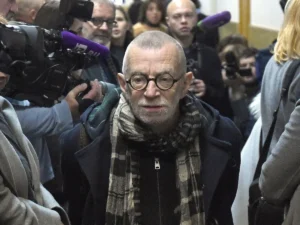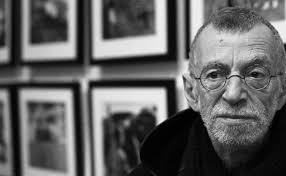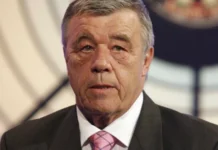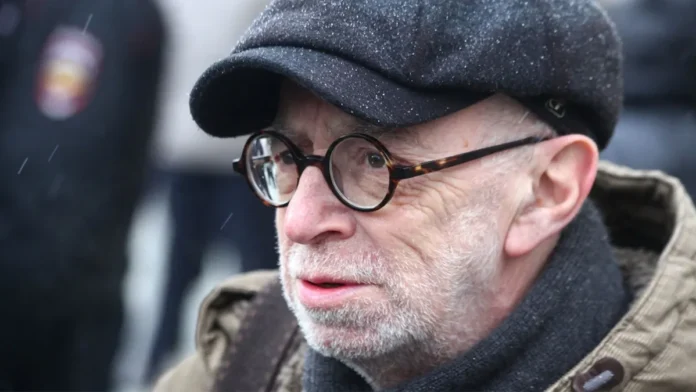Lev Rubinstein is a Russian poet, essayist, and social activist, played a key role as a founder and participant in the Moscow Conceptualism movement.
Bio/Wiki
Age-76 years
Height-5.6
Weight-70kg
Full name- Lev Semyonovich Rubinstein
Born-19 February 1947
Birthplace-Moscow, Russia
Died- 14 January 2024
Spouse-Irina Golovinskaya
Profession-Russian poet and essayist
Nationality-Russian


Family
Born to parents of Jewish descent, information about his parents names is not available.
Wife
Rubinstein was wedded to Irina Golovinskaya and had a daughter named Maria.
Education
Rubinstein pursued philology at Moscow Pedagogical Institute for Correspondence Studies (now Sholokhov Moscow State University for Humanities). Following his graduation, he served as a librarian and bibliographer at the same institution.
Career
During the 1970s and 1980s, Rubinstein emerged as a prominent figure in the clandestine Soviet literary community, particularly for his involvement with Moscow Conceptualism. Shifting gears in his later career, he delved into journalism and social activism, contributing to publications like Itogi and the Weekly Journal. In 1999, Rubinstein received the Andrei Bely Prize for his contributions to scholarship in the humanities.
Renowned for his “notecard poems,” Rubinstein’s unique approach involved representing each stanza on a separate notecard. This unconventional format transformed the text into both an object and a means of expression, requiring readers to engage with the physicality of the text. Despite the discrete numbering of each stanza, the cards needed to be read in a specific order to grasp the intended meaning.


Rubinstein’s poetic works showcased a fusion of literary forms, seamlessly transitioning between verse and prose, adopting play-like structures, and providing cues for the audience. A distinctive feature of his writing was the use of “quasi-quotations” — seemingly everyday phrases meticulously constructed with a specific style and meter. While often borrowing from the styles of influential Russian writers, Rubinstein skillfully adapted his own words, creating quotations that appeared commonplace but were, in fact, his unique creations.
Closely affiliated with the Moscow Conceptualists, an artistic movement in Russia that prioritizes the conceptual aspect of art over traditional artistic focuses, Rubinstein emphasized the importance of rethinking and renaming in the creative process. He expressed the notion that naming holds greater significance than mere action. Moscow Conceptualism, according to Rubinstein, is a unifying force rooted in the inner sense that the world is already divided, all texts are written, and all paintings are drawn. He saw the artist’s role as reimagining and renaming. This perspective also served as a counterpoint to Russian socialist realism, focusing on the individual’s consciousness navigating the myth of socialist realism.
Achievement/ Award
- 1999: Andrei Bely Prize
Awarded the literary Andrei Bely Prize in the category of Humanitarian Research in 1999.
- 2012: NOS Literary Prize
Received the NOS Literary Prize in 2012 for his book titled “Signs of Attention.”
Net Worth 2024
At the time of his death, his financial worth ranged from $1 million to $5 million.
Cause of Death
Lev Rubinstein, a Russian poet and influential figure in the underground literary scene during the Soviet era, as well as a vocal critic of President Vladimir Putin, passed away six days after being struck by a car in Moscow, as confirmed by his daughter.
Mr. Rubinstein, aged 76, succumbed to injuries sustained on January 8 after spending several days in a coma. He was renowned for his role in co-founding the conceptualist movement.
“My papa, Lev Rubinstein, died today,” his daughter Maria wrote on her blog.


One of Russia’s oldest civil rights groups, the organization faced closure in December 2021 due to Moscow’s intensified crackdown on opposition to the war in Ukraine. Mr. Rubinstein, described as a close friend by Memorial, strongly opposed Russia’s military actions in Ukraine and criticized the Russian government’s stance on LGBT rights. Despite the challenges, he chose to remain in Moscow for the past two years, not only for his own sake but also to support others in their search for self-expression and, perhaps, resistance. Memorial conveyed these sentiments in a statement shared on X.












































